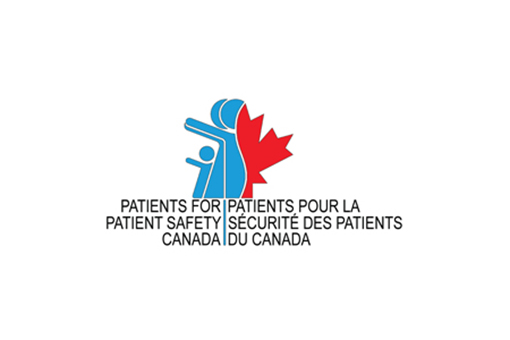Fervid’s legacy of care lives on through loved ones
October 31, 2012
To her loved ones, it was as if their beloved Fervid vanished overnight.
Yes, Fervid Trimble was 87 years old. She was ill with an apparent flu. Yet she’d been sharp as a tack just days before, living independently in her own apartment.
A worried phone call from Fervid had been enough of a concern for family to initially take her to an emergency room for assessment. She was dehydrated, so she was given fluids and sent home.
The next day, with symptoms persisting, Fervid was transferred to the healthcare centre attached to her seniors’ complex to recuperate. Everyone expected she’d be back home in no time.
“What actually happened is she started getting a lot worse,” says Fervid’s daughter-in-law, Johanna Trimble. “When I say worse, I mean cognitively.”
Fervid was lucid one moment, hallucinating the next. She suffered coordination problems and repetitive arm movements.
“Sometimes we would arrive, find her in her bed and could not wake her up,” says Johanna. “It was not a normal nap. We honestly could not wake her.”
At other times, Fervid was delirious. She talked of just visiting Seattle with her husband, who died years before.
This mysterious descent into dementia was puzzling. Johanna finally inquired about Fervid’s prescriptions — pain medication, as well as an anti-depressant — and then used her library-science background to research the drugs. Each, it turned out, affected serotonin levels in the brain and the combination could cause an adverse drug interaction, known as serotonin syndrome. The syndrome’s symptoms matched Fervid’s.
Johanna says the anti-depressant prescription was a shock to family members. Fervid was not depressed in the days before her flu.
More likely, she was grieving about being away from her home, friends and neighbours in her apartment complex. And the delirium, Johanna suspected, was due to an adverse drug interaction.
The facility’s psychiatrist, though, was about to put Fervid on another drug — one used in treating Alzheimer’s.
“The big problem, looking back, is that these psychiatrists don’t know the patients well,” says Johanna. “All they see is the state they’re in at the moment.”
To physicians, Fervid was displaying symptoms of depression and dementia. But this wasn’t the Fervid known to her friends and family.
Fervid was brought up on a dirt-poor wheat farm in southern Alberta. Her family moved south to the U.S. and Fervid eventually put herself through the University of Idaho, earning a masters degree in education.
“This was back in the early 1940s,” says Johanna. “This is the kind of woman we’re talking about. She was a force to be reckoned with.”
As it turns out, so are Fervid’s loved ones. Johanna, with her research documented, teamed up with her husband Dale and his sister Kathie to meet with the facility’s medical staff.
“My husband conducted the meeting because he’s a skilled conflict-resolution professional,” says Johanna, smiling. “I tend to get hot-headed.”
The medical staff listened closely to the family’s findings and concerns. Immediately, a decision was made to change Fervid’s medication.
“It took somewhere between three and six weeks for her to come back,” says Johanna. “She was right back to normal, sharp as she ever was.”
Unfortunately, the news wasn’t all good. The adverse drug reaction had resulted in Fervid being bed-ridden for months. In frail elderly people, this often results in rapid loss of muscle strength.
When she was finally released, Fervid required a wheelchair for mobility.
About five years later, Fervid became ill with a recurring bacterial infection. Though she became weaker over time, her mind remained clear.
“Something happened to us as a family,” says Johanna. “I can only say that I think Fervid knew that she wasn’t going to be there very long, and we started having these incredible conversations with her.
“Fervid shared all of the wisdom and experience she had in her life. She told us how much she loved us.”
One day near the end, Fervid said something profound. Johanna can’t remember the words, but doesn’t need them to remember the message.
“It was like she passed the torch, or passed the baton,” says Johanna, who made it her mission to work on behalf of elders in care.
“I feel inspired to go forth and see that what happened to us doesn’t happen to other people.”
Johanna joined Patients for Patient Safety Canada (a patient-led program of the Canadian Patient Safety Institute, now Healthcare Excellence Canada), as well as a number of other patient advocacy organizations. She is also on a working committee developing continuing physician education on the overuse of drugs in treating the elderly.
“Everyone has the best intent, but we have to look much more carefully at how we’re prescribing for frail elders, who have half the liver function and half the kidney function of somebody under 75.”
She also can’t stress enough the importance of involving family members in patient care. If the facility staff don’t ask, it’s up to a patient’s loved ones to step up, and with respect, ask questions and provide input.
“This is not completely without self interest,” says Johanna, smiling. “I have four grandchildren. I’m looking at needing the healthcare system someday myself.”
The story of Fervid’s experience in care emphasizes the importance of being an advocate for our loved ones, when they are unable to do so themselves.

Want to read more?
